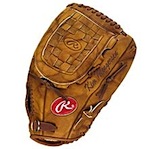Doctors’ Notes
BackBaseball & Pitching Safety
When can my child start throwing a curveball? How many pitches are too many? My child plays on a Little League Baseball team and 2 traveling teams — is this bad?
These are common questions asked in pediatric offices almost every day in the spring and summer months. And with good reason. One of the areas of concern with baseball, especially for children who pitch for their teams, is overuse injury to the shoulder and elbow.
A child throwing too much, too early greatly increases the risk for elbow and shoulder injury. If a child feels pain in an elbow or shoulder the day following pitching, or if there is either painful or reduced movement in the throwing arm compared to the non-throwing arm, your child should be seen and evaluated by a doctor. Until the examination, ice the affected area and give non steroidal anti-inflammatory drugs like Motrin or Ibuprofen for relief.
 Here are some important tips for preventing injury:
Here are some important tips for preventing injury:
- Properly warming up, with stretching and gradual throwing, is key
- Play other positions on the field outside besides just pitching
- Stick to pitch counts, and avoid pitching on multiple teams where seasons overlap
- Do not pitch through pain. (This isn’t the major league!) Any reports of elbow and shoulder pain should be evaluated.
- Focus first on control, accuracy, and good fundamental mechanics of pitching.
Here are some charts, developed for Little League Baseball by world-renowned surgeon Dr. James Andrews, that help give guidance to parents and coaches on numbers of pitches, periods of rest, and times when it’s okay for kids to learn to throw new pitches.
REST PERIODS REQUIRED
Pitches, Age 7-16 Pitches, Age 17-18 Required Rest
61+ 76+ 3 calendar days
41–60 51–75 2 calendar days
21–40 26–50 1 calendar day
1–20 1–25 None
MAXIMUM PITCH COUNTS
Age Pitches/Game
7–8 50
9–10 75
11–12 85
13–16 95
17–18 105
RECOMMENDED AGE FOR LEARNING PITCHES
Fastball 8 ± 2
Slider 16 ± 2
Change-up 10 ± 3
Forkball 16 ± 2
Curveball 14 ± 2
Knuckleball 15 ± 3
Screwball 17 ± 2
Travis Lewis is a certified Athletic Trainer and a certified Physician Assistant.